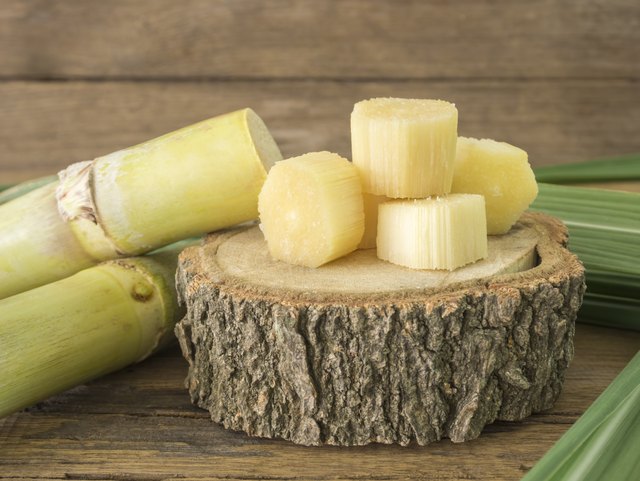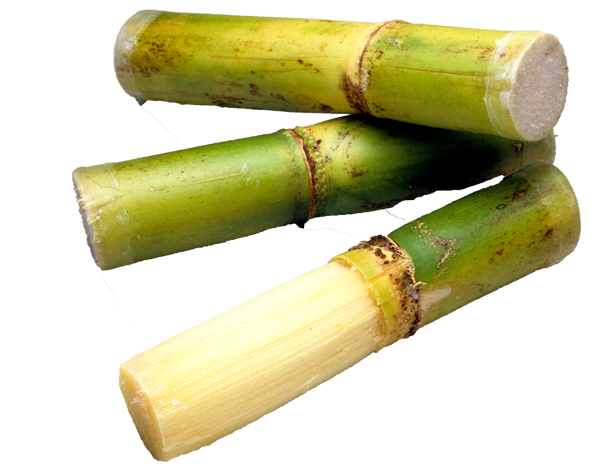From Field to Table: The Journey of Sugar and Cane
From Field to Table: The Journey of Sugar and Cane
Blog Article
Why Walking Cane Sugar Processing Chemicals Are Important for Modern Sugar Refining
The role of cane sugar processing chemicals in modern-day sugar refining can not be overstated, as they are essential to enhancing both the performance of removal and the total quality of the last product. Representatives such as phosphoric acid and particular flocculants are employed to remove impurities, resulting in sugar that not only meets customer expectations yet likewise adheres to market standards.
Role of Processing Chemicals
The efficiency of cane sugar handling pivots considerably on the critical application of handling chemicals. These chemicals play an essential function in enhancing the efficiency and top quality of sugar removal and refining. From the initial stages of juice removal to the final purification steps, handling chemicals facilitate numerous essential procedures.
In the removal phase, chemicals such as phosphoric acid and calcium hydroxide are utilized to enhance the explanation procedure, aiding to eliminate pollutants and suspended solids from the walking stick juice. This not just enhances the return yet additionally makes sure the clarity of the end product. In addition, agents like flocculants aid in the fast settling of contaminations, therefore enhancing the overall procedure.
Activated carbon and ion exchange materials offer to eliminate color and smell, guaranteeing that the polished sugar meets consumer high quality criteria. Hence, the precise option and application of these chemicals are essential for achieving optimal end results in cane sugar handling.
Secret Kinds of Chemicals
Walking stick sugar processing depends on a variety of essential chemicals that assist in each phase of manufacturing. These chemicals play crucial roles in making clear, bleaching, and cleansing the sugar drawn out from walking stick.
One key group of chemicals consists of flocculants, such as polyacrylamide, which aid in the clarification process by promoting the aggregation and settling of impurities. In addition, calcium hydroxide is often employed to neutralize acidity and help in the removal of non-sugar elements.
Whitening agents, such as triggered carbon and sulfur dioxide, are made use of to decolorize the syrup, leading to a more clear end product. These chemicals help get rid of color compounds that may affect the sugar's appearance and bankability.
Additionally, phosphoric acid works as a pH regulatory authority during the handling stages, making certain optimum conditions for the chemical activities associated with sugar removal and purification.
Various other vital agents include edta (ethylenediaminetetraacetic acid), which chelates steel ions that could militarize unfavorable reactions, and salt hydroxide, which helps in pH control throughout the refining process. Jointly, these chemicals improve efficiency and ensure a premium cane sugar product.
Advantages for Sugar High Quality
Typically overlooked, making use of particular processing chemicals dramatically improves the total high quality of walking cane sugar. These chemicals play a crucial role in refining procedures, guaranteeing that the end product meets rigorous sector standards for pureness and taste.

Additionally, processing chemicals assist in achieving a constant granulation and appearance, which are vital for consumer acceptance. By managing the condensation procedure, these chemicals make certain that the sugar crystals create uniformly, bring about an extra attractive product that dissolves well in different applications.
In addition, the usage of these chemicals can enhance the shelf life of walking cane sugar by lessening dampness absorption and microbial development. Overall, the strategic application of handling chemicals is important for providing top quality cane sugar that fulfills consumer assumptions and sector needs.
Environmental Effect Considerations

In addition, the energy-intensive nature of sugar refining, compounded by chemical usage, typically leads to enhanced carbon discharges. This adds to climate modification and increases problems concerning the sustainability of current refining practices. Additionally, the sourcing of these chemicals may involve practices that endanger important site biodiversity, such as monoculture farming, which decreases the strength of farming communities.

To alleviate these influences, sugar refiners are significantly checking out sustainable alternatives and taking on finest methods that reduce chemical usage. Applying strenuous environmental management systems can aid make certain that the refining procedure straightens with ecological requirements and promotes biodiversity. Inevitably, a balanced method that prioritizes both sugar high quality and ecological stewardship is important for the long-term practicality of the sugar industry.
Future Patterns in Refining
As the sugar sector comes to grips with the ecological difficulties linked with typical refining approaches, ingenious methods are emerging to enhance both effectiveness and sustainability. One significant pattern is the adoption address of environment-friendly chemistry principles, which focus on the use of non-toxic, naturally degradable handling chemicals. This shift not only lessens ecological effect yet also addresses customer demand for cleaner manufacturing methods.
Another appealing growth is the application of advanced filtering modern technologies, such as membrane separation and adsorption procedures. These techniques enhance the quality and quality of the sugar while lowering the volume of wastewater produced throughout refining. In addition, the integration of electronic modern technologies, including IoT and AI, is changing operational performance by enabling real-time monitoring and predictive upkeep, thus lessening source waste.
Moreover, using spin-offs from sugar refining, such as bagasse and molasses, is getting grip. These products can be exchanged biofuels or value-added items, adding to a circular economic situation within the industry. Collectively, these patterns signify a change in the direction of more lasting practices that not just boost functional performance but also line up with international sustainability goals, making certain the future viability of sugar refining.
Conclusion
Cane sugar processing chemicals are necessary in modern-day sugar refining, considerably boosting the efficiency and quality of sugar extraction. The critical use of these chemicals not only improves the pureness and taste of the end product but also guarantees constant Look At This condensation and structure. As the market significantly focuses on sustainability, the fostering of environmentally-friendly processing agents is likely to form future fads in refining, ultimately leading to greater top quality items and extended service life for consumers.

Ultimately, a well balanced approach that prioritizes both sugar quality and environmental stewardship is important for the long-lasting viability of the sugar market.
Cane sugar processing chemicals are vital in contemporary sugar refining, significantly improving the performance and top quality of sugar extraction.
Report this page